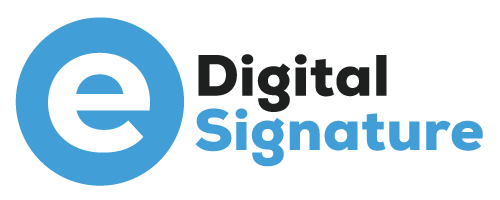Notifications

14 minutes, 56 seconds
-478 Views 0 Comments 0 Likes 0 Reviews

In the rapidly evolving digital landscape, securing online interactions and building trust with customers is paramount. Digital marketing, which encompasses a variety of online strategies aimed at attracting and retaining customers, is at the forefront of these shifts. One critical yet often overlooked aspect of this transformation is the role of Digital Signature Certificate (DSC). While most people associate DSCs with securing transactions and legal documents, their impact on digital marketing is just as profound. In this article, we’ll explore how Digital Signature Certificates are reshaping the future of digital marketing and why they are essential for businesses aiming to build trust, ensure security, and enhance customer experience.
A Digital Signature Certificate is an electronic equivalent of a handwritten signature or a stamped seal, but it offers far more security. It is issued by a Certifying Authority (CA) and ensures that the sender of a message or document is authenticated and that the message or document has not been altered during transmission. Digital Signature Certificates leverage asymmetric cryptography, where each signature is linked to a unique key pair: a private key for signing and a public key for verifying the signature.
Trust is the foundation of any successful digital marketing campaign. Customers today are more aware of the potential dangers of online fraud, identity theft, and data breaches than ever before. The rapid growth of e-commerce and online transactions has made it essential for businesses to demonstrate credibility, especially in an environment where consumers are increasingly cautious about sharing their personal information.
Digital Signature Certificates play a pivotal role in this process by providing businesses with the tools to ensure that their communications and transactions are authentic, tamper-proof, and secure. By offering verifiable digital signatures, businesses can build trust with customers, which is the most important factor when driving conversion rates in digital marketing.
One of the primary concerns for consumers engaging with digital marketing campaigns is the security of their data. Whether they are subscribing to a newsletter, signing up for an online service, or making a purchase, customers need assurance that their sensitive data is protected. Digital Signature Certificates ensure that the information shared by customers remains confidential and is transmitted securely.
In email marketing, for example, businesses use Digital Signature Certificates to verify that an email is truly from the source it claims to be. This reduces the risk of phishing attacks, which are a major threat to customer trust. By digitally signing marketing communications, businesses can reassure recipients that the email is genuine and has not been tampered with, significantly reducing the chances of falling victim to fraudulent schemes.
Moreover, the GDPR (General Data Protection Regulation) and other data privacy regulations have made it mandatory for businesses to implement robust security measures for handling customer data. Digital Signature Certificates enable compliance with these regulations by ensuring that any data shared or transactions processed online are secure, encrypted, and traceable.
Email marketing is one of the most effective and widely used digital marketing strategies. However, one of the challenges businesses face in email marketing is getting their emails noticed and ensuring they are opened by recipients. In addition to high-quality content and targeting, authenticity is critical for the success of email campaigns.
When businesses use Digital Signature Certificates to sign their emails, they authenticate the source, assuring recipients that the email is legitimate. This authentication helps to prevent phishing scams and spoofed emails, which can harm a business’s reputation and customer trust. A digitally signed email is more likely to be trusted and opened by the recipient, leading to higher engagement rates.
Furthermore, digitally signed emails are less likely to end up in spam folders, as email service providers can authenticate the signature and verify the legitimacy of the sender. This reduces the risk of valuable marketing messages being lost or overlooked and ensures that the email reaches its intended audience.
A business’s website is the cornerstone of its digital marketing efforts. It serves as the primary interface between the company and its customers, providing information about products or services, offering customer support, and facilitating transactions. As such, ensuring the security and integrity of a website is crucial.
Digital Signature Certificates are integral to ensuring the authenticity of a website. SSL (Secure Socket Layer) certificates, which are a form of Digital Signature Certificate, are used to encrypt communication between a user's browser and the server hosting the website. This encryption guarantees that any sensitive information shared, such as credit card details, login credentials, or personal data, is kept secure from malicious actors.
Moreover, a website with an SSL certificate (indicated by the “HTTPS” prefix in the URL) provides visitors with a visual cue that the site is secure, further building trust. Google, the leading search engine, now factors website security into its ranking algorithm. Websites that are not secure (lacking SSL encryption) may face lower search rankings, diminishing their visibility and harming their digital marketing efforts. Thus, by securing their websites with Digital Signature Certificates, businesses can not only protect customer data but also improve their SEO rankings and visibility.
Begin by navigating to the official DSC application website.
Fill in the required information accurately to proceed with your Digital Signature Certificate (DSC) application. Make sure to provide the following details:
User Type, Class Type, Certificate Type: Choose your user type (individual, organization, etc.), select the class of DSC (Class 3), and indicate whether the certificate is for signing only or for both signing and encryption.
Validity: Specify the desired validity period for your DSC.
Applicant's Name and Contact Information: Enter your full name along with your phone number and email address.
Residential Address: Provide your complete residential address, including any apartment numbers, building names, pin codes, city, and state.
Declaration: Read and acknowledge the terms of service related to the DSC application.
Once you have completed the form, click the Submit button to proceed.
If you already possess a token, select "No" in the token section, and your DSC will be issued on your existing token. If you do not yet have a token, choose "Yes" to proceed with obtaining a new token.
Proceed to the payment section to pay the necessary application fee for the DSC. You can complete the payment through various online modes such as net banking, credit card, debit card, or UPI.
Once you’ve completed the application, uploaded the necessary documents, and made the payment, submit your DSC application. The relevant authorities will review your application. After approval, your DSC will be issued electronically, and a secure Pen Drive containing your DSC will be sent to you via post.
E-commerce businesses face a unique set of challenges when it comes to securing online transactions. In the absence of face-to-face interactions, customers must rely on the credibility of the e-commerce platform to ensure that their financial information is safe.
Digital Signature Certificates provide an essential layer of security in e-commerce transactions. By digitally signing transactions, businesses can verify the authenticity of each sale and ensure that the transaction is secure and has not been altered. This level of security helps to prevent fraud, chargebacks, and disputes, all of which can harm a business’s reputation and bottom line.
In addition to ensuring secure transactions, Digital Signature Certificates can also be used to authenticate customer accounts. By implementing multi-factor authentication (MFA) with Digital Signature Certificates, businesses can offer an extra layer of security, enhancing the user experience and providing customers with peace of mind.
Transparency is a key factor in building strong relationships with customers. Digital marketing efforts that prioritize transparency are more likely to foster long-term loyalty and advocacy. Digital Signature Certificates promote transparency by providing a verifiable audit trail for online interactions.
For instance, when a customer signs an agreement or makes a purchase on a website, the transaction can be digitally signed, ensuring that it is not tampered with and that the customer’s consent is recorded. This level of transparency provides both the business and the customer with a clear, trustworthy record of the interaction.
This level of accountability is particularly important in industries such as legal services, finance, and healthcare, where digital marketing campaigns may involve sensitive information or transactions. By using Digital Signature Certificates, businesses in these industries can demonstrate their commitment to maintaining high standards of integrity and security.
With the increasing focus on digital privacy and consumer protection, businesses must comply with a growing body of regulations that govern digital marketing activities. From data protection laws like GDPR to email marketing regulations such as CAN-SPAM, businesses must ensure that their digital marketing practices are legal and ethical.
Digital Signature Certificates play a critical role in ensuring compliance. They provide a secure way to obtain and record customer consent for marketing communications, ensuring that businesses are adhering to regulations and avoiding costly penalties. For example, when obtaining customer consent for newsletters or promotional emails, businesses can use Digital Signature Certificates to authenticate the process, making it easier to prove that consent was obtained in compliance with relevant laws.
As digital marketing continues to evolve, businesses will face increasingly complex challenges related to security, trust, and data privacy. Digital Signature Certificates will continue to be a vital tool in addressing these challenges.
With the rise of emerging technologies such as blockchain and artificial intelligence, Digital Signature Certificates will play an even more prominent role in securing and authenticating digital interactions. Blockchain, for example, leverages cryptographic techniques similar to those used in Digital Signature Certificates to create immutable and transparent transaction records. This integration of security and transparency will further transform the way businesses approach digital marketing, particularly in areas such as supply chain transparency, customer loyalty programs, and digital content protection.
Also read:- Digital Signature Certificate for Income Tax.
Digital Signature Certificates are already shaping the future of digital marketing in profound ways. By enhancing trust, securing customer data, improving email marketing, and ensuring compliance, DSCs provide businesses with the tools they need to build stronger, more transparent relationships with customers. As digital marketing continues to evolve, the role of Digital Signature Certificates will become even more crucial, helping businesses stay ahead of the curve in a fast-paced, increasingly security-conscious digital world.

